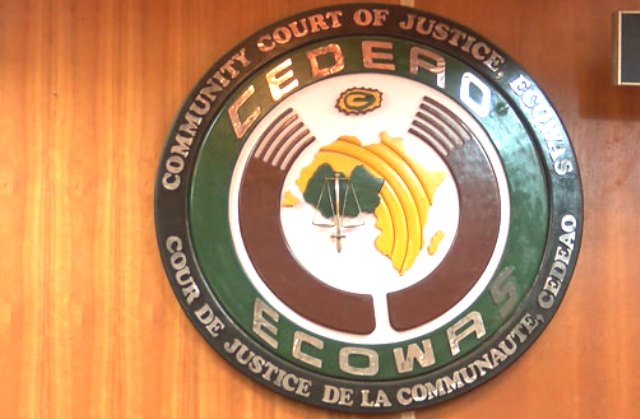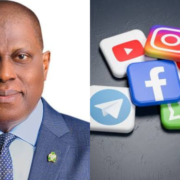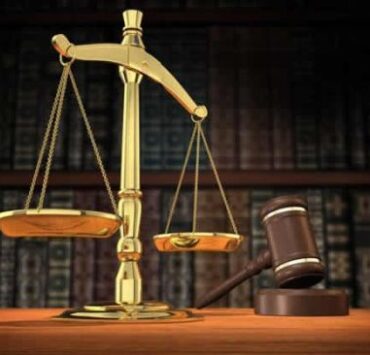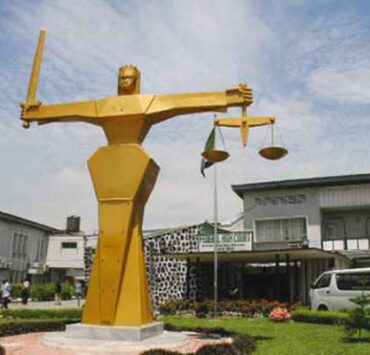ECOWAS Court Rules that some NBC Broadcasting Codes Infringes on Human Rights

Lawyard is a legal media and services platform that provides…
The Economic Community Of West African States (ECOWAS) Court of Justice has ruled that some of the Nigeria Broadcasting Codes infringe on Nigerians’ rights, including freedom of expression.
The court made the pronouncement on October 23 in the case brought by the Incorporated Trustees of Expression, currently known as the Human Rights Initiative.
The applicants claimed that some of the provisions of the codes violated human rights enshrined in Nigeria’s Constitution.
The respondent – the Nigerian government – disputed any infringement on the applicant’s right to free speech and agreed with the imperative of making citizens enjoy their rights.
It argued that the codes were developed to support regional content, stop monopolistic activities, and increase advertising income for regional broadcasters and content creators.
According to the respondent, stations that air content that encourages hate speech or public disturbances might face penalties from the National Broadcasting Commission (NBC).
It denied utilising the code to harass the applicants and restrict citizens’ freedom of speech.
According to a statement posted on its official website, the ECOWAS Court, in its judgment, declared that the codes “contravene Article 9 (1) & (2) of the African Charter on Human and Peoples’ Rights (ACHPR).”
The affected provisions of the law, the Sixth Edition, are Articles 3 (1) (1), 3(1) (2), 15(2) (1) of the NBC and Article 15 (5) (1) of the Amendments to the Code.
Consequently, it directed the Respondent (the Nigerian government) to align Articles 3 (1) (1), 3(1) (2), 15(2) (1) of the Nigeria Broadcasting Code (6th Edition) and Article 15 (5) (1) of the Amendments to the Nigeria Broadcasting Code (6th Edition) with its international commitments.
Furthermore, it mandated the respondent to refrain from implementing Articles 3 (1) (1), 3 (1) (2), 15 (2) (1), and Article 15 (5) (1) of the amendments to the Nigeria Broadcasting Code (6th Edition) until the same have been aligned.
It rejected all of the applicants’ other claims.
The judges that heard the case include Dupe Atoki, the presiding judge; Sengu Mohamed Koroma, the judge rapporteur; and Ricardo Cláudio Monteiro Gonçalves.
The counsel for the applicant is Solomon Okedara, while the respondent is Maimuna Lami Shiru.
In 2020 that the group filed a suit at the ECOWAS Court against the Federal Government of Nigeria over the N5 million penalty imposed on Nigerian Info 99.3 FM station, Lagos, for granting an interview to Obadiah Mailafia, former deputy governor of Central Bank of Nigeria (CBN).
The rights group argued that the Federal Government’s action was against Article 9 (1) (2) of the African Charter on Human and Peoples Rights, Article 19 of the International Covenant on Civil and Political Rights, and Article 66 of the (2) of the revised ECOWAS Treaty.
It also kicked against some provisions of the Nigerian Broadcasting Corporation (NBC) Code, noting that those sections breach the fundamental principle of a free press.
According to a copy of the suit obtained, the group asked the Court to declare as void Articles 3.1.1, 3.1.2, and 15.2.1 of the NBC Code 6th edition.
It stated that since NBC is not an independent judicial body, it could not exercise Article 15.5.1 of the amended code, including other penal provisions in the regulation.
The NBC sanctioned the Nigeria Info FM station over allegations by Mailafia on the state of insecurity in the North East. He alleged that a northern state governor was a commander of the Boko Haram group.
Mailafia’s claims were aired on the “Morning CrossFire” radio programme on August 10, 2020.
“Dr Obadiah Mailafia’s comments on the southern Kaduna crisis were devoid of facts, and by broadcasting the same to the public, Nigeria Info 99.3 FM is in violation of the following sections of the NBC code: 3.1.1 No broadcast shall encourage or incite to crime, lead to public disorder or hate, be repugnant to public feelings or certain offensive reference to any person or organisation, alive or dead or generally be disrespectful to human dignity,” a statement by the NBC read.
However, stakeholders criticised the sanction, describing it as an assault on media independence.
The Incorporated Trustees of Expression, now Human Rights Initiative, is a Non-Governmental Organisation (NGO) focused on defending Nigerian citizens’ online and offline freedom of expression.
Lawyard is a legal media and services platform that provides enlightenment and access to legal services to members of the public (individuals and businesses) while also availing lawyers of needed information on new trends and resources in various areas of practice.













